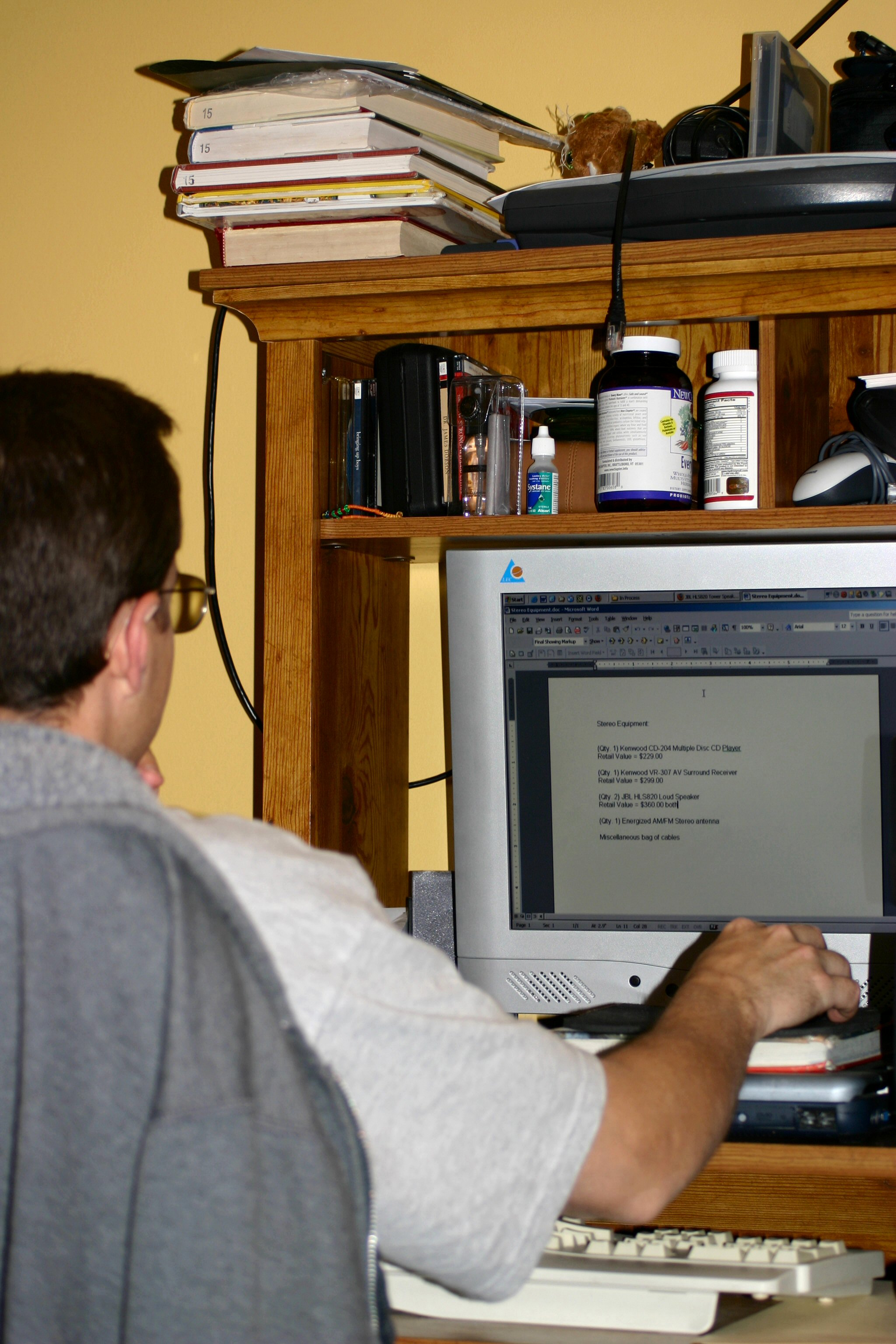
by cjxpadmin | Jul 1, 2013 | This Issue's FEATURE
By Sheena Williams
In an earlier issue, we discussed ensuring that your soft skills were on point when you start applying for jobs. For those of you who are not sure what a soft skill is, a soft skill is a skill that you have that isn’t technically something you can vocalize on your resume. For instance, things such as being on time, being dependable, and being resourceful.
The problem lies in knowing where the strengths of your soft skills lie and what they are. We’ve broken them down here to give you a good idea of how to at least go about finding your soft skills and knowing which ones you should develop.
 Emotional: Emotional soft skills include things such as being enthusiastic, positive, and outgoing. No one is saying that you have to hop around like a cheerleader on speed, but we are saying that it’s a good idea to develop skills that make people want to work with you. A smile can go a long way. Even if you are having a bad day, your positive attitude will make a world of difference when interacting with employees and clients.
Emotional: Emotional soft skills include things such as being enthusiastic, positive, and outgoing. No one is saying that you have to hop around like a cheerleader on speed, but we are saying that it’s a good idea to develop skills that make people want to work with you. A smile can go a long way. Even if you are having a bad day, your positive attitude will make a world of difference when interacting with employees and clients.
How You Look: Should it matter how you look if you do your job and do it well? Yes, and here’s why. Your company is either  selling a product or a service. And to do either of those, they need to have people who the public can trust. Would you give your investment money to a banker or to someone who had their pants around their ankles and wearing shirts 8 sizes too large for them? Of course not, and no one expects you to. You are not only selling the service or product, you are selling yourself as someone who is knowledgeable about the product or service you are selling. If you are not able to present yourself, how do you expect to present your product?
selling a product or a service. And to do either of those, they need to have people who the public can trust. Would you give your investment money to a banker or to someone who had their pants around their ankles and wearing shirts 8 sizes too large for them? Of course not, and no one expects you to. You are not only selling the service or product, you are selling yourself as someone who is knowledgeable about the product or service you are selling. If you are not able to present yourself, how do you expect to present your product?
Political: We aren’t talking about picketing or showing up at various events. We are talking about your ability to stay out of the politics that run rampant in any work place. You have to walk a fine line between being interested in what’s going on in the company and being too interested in what’s going on in the company. Tact is your friend and it’s a skill you should hone to perfection. Know the difference between helping out and being taken advantage of. These are key things that you are going to have to develop to survive in any place of business.
Negative Emotions: There are some days it just can’t be avoided. However, it’s how you handle your emotions that will tell you who is going to win the race. You are not always going to be put into ideal situations at work. We all have bad days. The trick is to not let it affect your work. Go in, square your shoulders and get started. If you get into a work routine, the day will take care of itself. If you’re having to reprimand someone as part of management, screaming at your employees is not acceptable in any work situation. This not only opens you up to legal problems, it opens the company up for them as well. Your job in any situation is to turn that bad situation into an ideal situation. Consider paring criticism with encouragement. Try it!
The Job You Do: Yes, you know how to lift 50 pounds, work 80 different software programs, and you climbed Mount St. Helens when you were 6. But can you do the job that is being asked of you? The words on your resume may be super and fantastic, but if your quality of work is lacking, you won’t be there for long. It’s fine and dandy to know the program that you are using at work, but do you know it well enough to produce results? What is your follow through like? Do you complete projects that you are given? Are you a perfectionist? When you do that presentation or speak to someone just off the street, do you sound like you know what you’re talking about? Is your work quality in line? If you’re using welding tools, are all the safety points being considered? That PowerPoint presentation you submitted recently, is everything spelled correctly? You are not only being judged by how you look, but by the type of work you are producing. Make sure that yours is worth remembering. 
Soft skills are skills that are often overlooked when applying for, or even when you are on the job. They are skills that can greatly impact your work experience. They cannot only take you to the next level when developed properly but they can also keep you back when they aren’t. Make your soft skills work for you! △

by cjxpadmin | Jul 1, 2013 | This Issue's FEATURE
By Sheena Williams
Losing a job is something we’ve all had to face at one time or another. Whether you’ve been working for 30 years, 3 years, or 3 months, we have all found ourselves without work. The worst thing that you can do is give in to depression and/or panic when starting your job search. We have a list of things that you can do starting today that will keep you occupied and job-ready while you wait for your ship to come in.
Volunteer: I know that it seems counterintuitive to help others while you feel you are the one who needs help. But helping others does a few things for you. #1, it allows you to network. Someone you are either helping or working with may know of a position that you are suitably qualified for, and this puts you in the spotlight because they can see how hard you are working. #2, it will take your mind off of your present problems. Sometimes seeing the other side of a situation and knowing that it could be a lot worst puts your life into perspective. #3, it will give you that warm fuzzy feeling…and skills that you can put on your resume. Hey, we said volunteer, not to get anything out of it!
does a few things for you. #1, it allows you to network. Someone you are either helping or working with may know of a position that you are suitably qualified for, and this puts you in the spotlight because they can see how hard you are working. #2, it will take your mind off of your present problems. Sometimes seeing the other side of a situation and knowing that it could be a lot worst puts your life into perspective. #3, it will give you that warm fuzzy feeling…and skills that you can put on your resume. Hey, we said volunteer, not to get anything out of it!
Organization: Now would be a perfect time for you to start organizing your home. Not only will you feel better about yourself, you will have everything you need to get your job of job searching done right  there at your fingertips. Doing two to three household chores a day will lighten your mood and give you a sense of accomplishment. One of the things you will miss the most about your job is having that reason to get up and get out of bed in the morning. By giving yourself things to do, you are supplying that need while getting a lot done.
there at your fingertips. Doing two to three household chores a day will lighten your mood and give you a sense of accomplishment. One of the things you will miss the most about your job is having that reason to get up and get out of bed in the morning. By giving yourself things to do, you are supplying that need while getting a lot done.
Organize Your Job Search: You know that your first order of business is to find a job as soon as possible. Know what would make that easier? A plan! Do you know what kind of job you’re seeking? Have you had your resume worked on or looked over? Do you have all of the addresses and phone numbers you need to fill out any important forms? A lot of times, we miss job opportunities because we are not diligent with the things that we need to have done. It behooves all of us to have those things ready at a moment’s notice. Do you have business cards? Well, maybe it’s time you have some done. Most office supply stores offer really affordable business cards or look online for some great deals. Do you have a cover letter? No time like the present for creating one. You’re applying to that company… do you know anything about it? Well, maybe it’s about time you read up on it! These are all things that you can do to help yourself prepare to get the job of your dreams!
Networking: You may not be outgoing, but putting the word out to your family and friends is an absolute must! Maybe they know someone who is hiring, or maybe they know someone who is having a party that you can attend. Oh, look! while at the party, you meet a guy who is looking for good people like yourself to hire! You didn’t want to be the parent that took your child to the birthday party, but since you’re there, you might as well have a chat with Bethany’s mom. She knows a lot of people and she may know your next employer! There are so many people who have gotten jobs due to word of mouth. It is the fastest way of getting anything done. By the time anything is published in a newspaper, magazine or even online, you can bet that people who work there are already telling their family and friends about the open positions at this awesome place where they work.
someone who is hiring, or maybe they know someone who is having a party that you can attend. Oh, look! while at the party, you meet a guy who is looking for good people like yourself to hire! You didn’t want to be the parent that took your child to the birthday party, but since you’re there, you might as well have a chat with Bethany’s mom. She knows a lot of people and she may know your next employer! There are so many people who have gotten jobs due to word of mouth. It is the fastest way of getting anything done. By the time anything is published in a newspaper, magazine or even online, you can bet that people who work there are already telling their family and friends about the open positions at this awesome place where they work.
The biggest thing that we can tell you to do when you are job searching is to keep your head up. Cry if you need to, but once you’re done, it’s time to get down to business. Easier said than done, right? But sometimes, you have responsibilities to take care of that require you to give your job search your full attention. Just keep yourself distracted from the bad and keep heading toward the good. △
by cjxpadmin | Jul 1, 2013 | This Issue's FEATURE
A Commentary by C’Mone Collins
So in the previous article entitled “GPA’S and Brainteasers: New Insights From Google On Recruiting and Hiring,” we found out that Google’s senior vice president believed that brainteasers were “a complete waste of time” and that GPAs “don’t predict [who] is going to be a successful employee.” He believed that behavioral questions should be used during the interviewing process instead of hypothetical’s.
So I took the liberty to do some research on “Behavioral Questions” and to find out what is the purpose of these questions? Well, in the article “Behavior Interview Questions” by Allison Doyle, it states that companies utilize behavioral questions to “find out if the candidate has those [certain] skills” that are required for a particular job. I also came across “Top Ten Behavioral Interview Questions.” It compiled a list of questions that you are most likely to be asked during an interview. Check these out to see how you would respond.
- Tell me about how you worked effectively under pressure.
- How do you handle a challenge? Give me an example.
- Have you ever made a mistake? How did you handle it?
- Give an example of a goal you reached and tell me how you achieved it.
- Describe a decision you made that wasn’t popular and how you handled implementing it.
- Give an example of how you set goals and how you achieve them.
- Give an example of how you worked on a team project.
- What do you do if you disagree with someone at work?
- Share an example of how you were able to motivate employees or co-workers.
- Have you handled a difficult situation? How?
Now, at some point during our quest to find a job, I’m sure we have all come across one or more of these behavioral questions. But what is the correct way to answer them? In the article “How to Answer Behavioral Interview Questions,” it touches on the fact that behavioral questions ask you to “describe how you really did approach something”, so they’ll ask you to “give an example” or “tell about a time when…” So when answering the questions, it is important to be detailed with your response because the interviewer will more than likely dig deeper with questions like “What did you do then? What happened after that? What was the result? How did you handle X?”
Be prepared with your answers — concise, yet abundant enough to satisfy the whole context of the question. △
Doyle, Allison. “Behavioral Interview Questions.” About.com Job Searching. N.p., n.d. Web. 24 June 2013.
http://jobsearch.about.com/od/behavorialinterviews/a/behavioral-interview-questions.htm
Green, Alison. “How to Answer Behavioral Interview Questions.” US News RSS. N.p., 26 Sept. 2011. Web. 24 June 2013.
http://money.usnews.com/money/blogs/outside-voices-careers/2011/09/26/how-to-answer-behavorial-interview-questions
Doyle, Allison. “Top Ten Behavioral Interview Questions.” About.com Job Searching. N.p., n.d. Web. 24 June 2013
http://jobsearch.about.com/od/behavorialinterviews/a/-top-behavioral-interview-questions.htm

by cjxpadmin | May 30, 2013 | June 2013 Magazine, This Issue's FEATURE
By Contributing Writer
A new year has begun and that means new job hunting trends. While the resume has also played an important role, there are also new trends to which we must pay attention. The most important thing to remember in writing your resume is that 2013 is the year of showing, not telling. What are some other resume writing trends for this year?
2013 Resume Writing Trends
If you want to write a resume that will help you stand out, you should pay attention to these tips:
1. Social Resumes
If you are serious about landing a job in 2013, then you’ll have to realize that resumes are no longer static pieces of paper. One of the most important changes in 2013 is the sociability of resumes. Resumes are becoming living entities online. Social Media means that the type of communication between hiring managers and prospective employees has also changed, is more direct and closer.
Prospective employees have the opportunity to interact with, and sometimes befriend, hiring managers before applying for a position. Companies are increasingly likely to use social networks and your social media accounts are now the true first impression.
2. Twitter
The popularity of Twitter is growing astronomically. The good news is that you are probably already on it. Job seekers can harness the power of a tweet by explaining why they are an excellent candidate in 140 characters or less.
Fortunately, you have 160 characters to describe yourself in your Twitter biography. Your Twitter biography section is the online version of your elevator pitch. If you find the task of condensing your qualifications daunting, then you just have to view this as an opportunity.
It is your opportunity to figure out what really makes you different. Brands refer to this as their Unique Selling Proposition (USP). Twitter is your chance to figure out your USP and develop your personal brand. Once you’ve hooked your prospective employee with your amazing biography, then you need to link your website, resume or other professional networking site, i.e. LinkedIn.
3. QR Codes
If you are applying for a technology-related position, then QR codes might help you stand out. A QR code is that small, square, barcode-looking image that you’ve probably seen in publications, advertising, and some product packaging. It shows that are aware of technology trends and that you know how to use them too.
It’s not mandatory, of course, but it can be a good way to add some coolness factor to your resume and make it stand out from the crowd.
Some tips for using QR codes on your resume:
- Take into consideration the type of position and the “audience”: QR codes will be more accepted by marketing-oriented employers
- Include your website’s URL in addition to the QR code
- Make sure that the website to which your QR code goes is fully accessible and mobile-friendly.
4. Infographics
A picture is worth 1000 words. Infographics are popping up everywhere online and on print. Candidates most likely applying for visual or creative positions can use the popularity of infographics to highlight their qualifications and skills.
Since infographic resumes do not cover in-depth details (they tend to be more simplistic than the standard resume), job seekers can use them to supplement their resume. In some cases, an infographic resume could catch the employer’s attention, but probably they will never replace the traditional text CV.
5. Other Useful Tips
Resumes should always be targeted, specific and quantifiable. Make sure that your resume is not only tailored to the position that you are applying to, but it should also be tailored to the company that you are applying to. Numbers, figures and percentages show what you can do. Quantifying your experience, where possible, also makes you appear more professional.
Hate to break it to you, but the standard “References Available Upon Request” is really outdated. Instead of using that overused phrase, consider showing managers what others have to say about you in 2013. You can pull your strongest third party testimonials and put them at the very top of your resume. The easiest place to find testimonials is from LinkedIn recommendations.
The debate of one- or two-page resumes continues. If you are making a resume that is tailored to that specific job description and company, then hiring managers can overlook the length. Edit your resume, where necessary. Hiring managers are busy and have limited time. An important tip is to make sure that your resume is readable on a computer and another mobile device.
Try reading your resume on a phone or tablet because hiring managers can quite possibly be reviewing your resume on a mobile device. Readability with bullets, bold fonts and short paragraphs matter more than resume length. △
Jose Sanchez has been a resume writer and career advisor since 1999. He writes and shares content related to resume writing, job interview questions, and cover Letters. Managing editor for resumetemplates.org.

by cjxpadmin | May 30, 2013 | June 2013 Magazine, This Issue's FEATURE
By Sheena Williams
When you are out looking for a job, there are some things that go unspoken when you’re on the hunt, which is really too bad because they are things that are really basic, but they make a large impact on how you are perceived by future employers. Don’t worry though. We are going to say them out loud so you’ll keep them in mind when looking for a job.
Hand Shaking
This is very important as you only have one chance to make a first impression. Make sure that you shake with your right hand, and give a firm handshake without squeezing too hard. A firm handshake communicates confidence while squeezing is seen as aggressive. No cupping the hand when you shake, as it can be seen as condescending. Keep it brief, but long enough for you and the interviewer to introduce yourselves.
Standing
When someone enters the room, regardless of the gender, you should stand and greet them. Smile, rise, and greet them with your new-patented handshake and confidently introduce yourself. In the world of work, confidence is key and if you can’t make them believe you’re confident and that you’re right for the job from the get-go, then it’s going to be an uphill climb from there.
Business Cards
Do not pocket the card right away when you are handed one. It appears dismissive. Smile, thank them, and politely take the time to read the card over. Review it for a few moments. Confirm or ask any pertinent questions while memorizing their name. Then put it away.
Cell Phone
Always silence your cell phone prior to any meeting or perhaps, put it on vibrate. During the interview, what you are trying to accomplish is that you give the impression that nothing is more important then what is going on at that moment. Constantly ringing phones not only interrupt your possible employer, it interrupts the whole interview.
Thank You Notes
Always follow up with a thank you note. This is a good idea for those of you with itchy call fingers. Not only does it make you stand out, it also leaves your meeting fresh in the employer’s mind without being pushy. It also keeps you from burning bridges. Even if you decide not to take the job (which can happen), a simple thank you for the opportunity can go a long way.
Calling
One of the things that you should have gotten, or at the very least politely asked about, was a length in time in which they would let you know if you got the job. Do not call everyday afterward. Follow-ups are important, but don’t call until the time frame is up. You want to appear excited about the opportunity, but not annoying to anyone who is still reviewing your resume.
Dress
Always dress appropriately for an interview and bring a smile with you. Even if your interview has been scheduled on a casual Friday, dress appropriately anyway. If you are going to get a job digging ditches, dress appropriately for that appointment. You are selling yourself and you are getting the chance to market yourself to someone who is hopefully going to be paying for your skills. You and your resume deserve to be presented in the best possible way.
Voice Mail
If it’s cute, funny, religious, political, suggestive, has kids chanting, or has music in the background… lose it. It may be great for grandma to hear the kids singing the caroling of the bells for five minutes before she can leave a message, but for an employer, it’s annoying and it’s a waste of time. Try to keep it short, to the point, and professional.
Phone Calls
Be clear, be confident, be polite, and identify yourself. The first two things that should fall from your lips over the phone should be your name and the reason you are calling or the person you are trying to reach.
Putting the Employer On Hold On the Phone
It is not okay to put a possible employer on hold. If you are getting another call while you are conversing with the employer, it can go into your voice mail. If the employer is calling, that means they are interested in speaking to you. Do not stop the gravy train before it has left the station by putting them on hold because Aunt Flo just had to tell you about what Timmy did last weekend. Those individuals who know that you are on a job hunt will understand when you get back to them.
Politeness
When going into a new work environment, make it a point to be polite to everyone! That means everyone. If the janitor says hello, you return the hello. If the secretary smiles and asks how your day is, you tell her it’s marvelous. If she just looks you up and down and sniffs, smile and ask how her day is going. You never know who knows who or who is related to whom, or even how close these people are to the person you’re hoping to work for. Not only will they be helpful in getting any information you may need, they are very likely to report any mishaps in your behavior to your future employer. In other words, just be nice, smile and treat everyone as you would like to be treated. Why? Because it’s just the right thing to do!
Now that you’re all prepared for the interview, go out there and get that job! △

by cjxpadmin | May 30, 2013 | June 2013 Magazine, This Issue's FEATURE
Body Language
By Sheena Williams
Reading people is an art that has been around for ages. Watching the way others move can tell you a lot about what they are thinking and what they are trying to say. If you watch your employer when he/she speaks to staff, you can look for certain things that may help you decide how to tread in the situation you mind find yourself in.
Keep in mind that body language is not an exact science. Some movements are different based on things like age, gender, culture, ethnicity, or location. No simple body language tells the whole story. There are plenty of outside factors that can affect a reading. We are just going to go over a few that are most common across the board to give you something to watch for when you are in an interview.
- Looking Left: This usually means they are trying to recall something.
- Direct Eye Contact: This could be honesty or faked honesty.
- Widening Eyes: Interest, appeal, or invitation could reflect this.
- Laughter: This could say there is a bit of relaxation around.
- Lip Biting: This is definitely built up tension.
- Chewing a Pen or Pencil: Mostly, this is self-comforting.
- Pursed Lips: This could signify thoughtful or upset.
- Slow Head Nodding: Perhaps this is attentive listening.
- Rapid Head Nodding: Hurry up or impatience is the meaning of this.
- Head Down: Most likely, this means negative or disinterested.
- Chin Up: Oh, most definitely pride and confidence.
- Crossed Arms: This means defensive or reluctant.
- Crossed Arms with Fist: Hostile defensiveness comes to mind.
- Hand Over Heart: This is someone seeking to be believed.
- Finger Pointing: This is aggressive action or speech.
- Hand Chop: This definitely means the last word on the matter.
- Fingertips Touching: This action means thoughtfulness.
- Ear Tugging: This tends to be Indecisive.
- Pumping Handshake: This means plenty of enthusiasm.
- Firm Handshake: No doubt, outward confidence.
Though this is a very short list of possible body signals, we have included a link if you would like to learn more. So good luck with your interview. Hopefully you’ll have a fist pumping, eye widening experience! △
More information can be located here: http://www.businessballs.com/body-language.htm

 Emotional: Emotional soft skills include things such as being enthusiastic, positive, and outgoing. No one is saying that you have to hop around like a cheerleader on speed, but we are saying that it’s a good idea to develop skills that make people want to work with you. A smile can go a long way. Even if you are having a bad day, your positive attitude will make a world of difference when interacting with employees and clients.
Emotional: Emotional soft skills include things such as being enthusiastic, positive, and outgoing. No one is saying that you have to hop around like a cheerleader on speed, but we are saying that it’s a good idea to develop skills that make people want to work with you. A smile can go a long way. Even if you are having a bad day, your positive attitude will make a world of difference when interacting with employees and clients. selling a product or a service. And to do either of those, they need to have people who the public can trust. Would you give your investment money to a banker or to someone who had their pants around their ankles and wearing shirts 8 sizes too large for them? Of course not, and no one expects you to. You are not only selling the service or product, you are selling yourself as someone who is knowledgeable about the product or service you are selling. If you are not able to present yourself, how do you expect to present your product?
selling a product or a service. And to do either of those, they need to have people who the public can trust. Would you give your investment money to a banker or to someone who had their pants around their ankles and wearing shirts 8 sizes too large for them? Of course not, and no one expects you to. You are not only selling the service or product, you are selling yourself as someone who is knowledgeable about the product or service you are selling. If you are not able to present yourself, how do you expect to present your product?


 does a few things for you. #1, it allows you to network. Someone you are either helping or working with may know of a position that you are suitably qualified for, and this puts you in the spotlight because they can see how hard you are working. #2, it will take your mind off of your present problems. Sometimes seeing the other side of a situation and knowing that it could be a lot worst puts your life into perspective. #3, it will give you that warm fuzzy feeling…and skills that you can put on your resume. Hey, we said volunteer, not to get anything out of it!
does a few things for you. #1, it allows you to network. Someone you are either helping or working with may know of a position that you are suitably qualified for, and this puts you in the spotlight because they can see how hard you are working. #2, it will take your mind off of your present problems. Sometimes seeing the other side of a situation and knowing that it could be a lot worst puts your life into perspective. #3, it will give you that warm fuzzy feeling…and skills that you can put on your resume. Hey, we said volunteer, not to get anything out of it! there at your fingertips. Doing two to three household chores a day will lighten your mood and give you a sense of accomplishment. One of the things you will miss the most about your job is having that reason to get up and get out of bed in the morning. By giving yourself things to do, you are supplying that need while getting a lot done.
there at your fingertips. Doing two to three household chores a day will lighten your mood and give you a sense of accomplishment. One of the things you will miss the most about your job is having that reason to get up and get out of bed in the morning. By giving yourself things to do, you are supplying that need while getting a lot done. someone who is hiring, or maybe they know someone who is having a party that you can attend. Oh, look! while at the party, you meet a guy who is looking for good people like yourself to hire! You didn’t want to be the parent that took your child to the birthday party, but since you’re there, you might as well have a chat with Bethany’s mom. She knows a lot of people and she may know your next employer! There are so many people who have gotten jobs due to word of mouth. It is the fastest way of getting anything done. By the time anything is published in a newspaper, magazine or even online, you can bet that people who work there are already telling their family and friends about the open positions at this awesome place where they work.
someone who is hiring, or maybe they know someone who is having a party that you can attend. Oh, look! while at the party, you meet a guy who is looking for good people like yourself to hire! You didn’t want to be the parent that took your child to the birthday party, but since you’re there, you might as well have a chat with Bethany’s mom. She knows a lot of people and she may know your next employer! There are so many people who have gotten jobs due to word of mouth. It is the fastest way of getting anything done. By the time anything is published in a newspaper, magazine or even online, you can bet that people who work there are already telling their family and friends about the open positions at this awesome place where they work.

